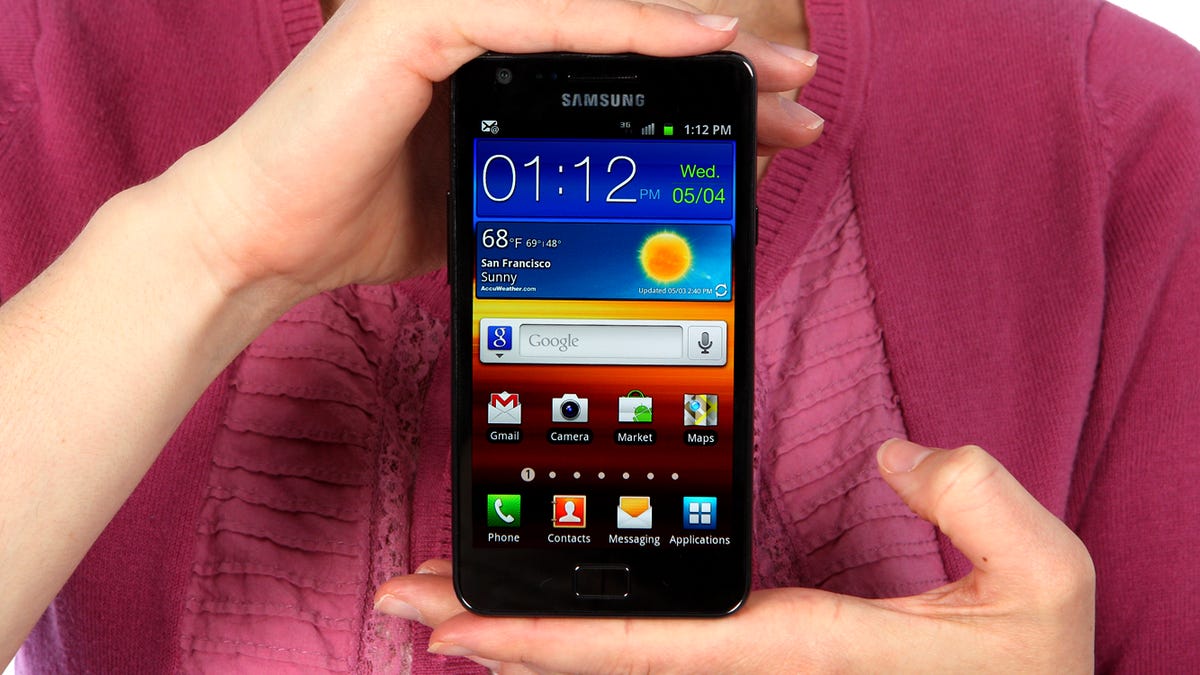Samsung Galaxy S phones hit by EU ruling
The company faces a preliminary injunction on key smartphones in Europe, following a Dutch court ruling today. The decision could also give Apple more ammo in its fight with Android.

Apple has won another major victory in its ongoing battle with Samsung.
A Dutch court in The Hague today issued a preliminary injunction against the Samsung Galaxy S, Galaxy S II, and Ace smartphones, following a hearing on the matter earlier this month. The court said that the Android-based devices violate a software patent that iPhone maker Apple holds in the European Union and that Apple claims Samsung violated.
According to FOSS Patents, which first reported on the court decision, the ruling will ban the sale of those devices in a host of EU countries where Apple's patent is valid. However, FOSS Patents says that Apple did not complete the full registration for the patent in many European countries, including Italy, Spain, and Greece, which means Samsung's devices likely won't be banned from those areas.
The preliminary injunction against Samsung's phones is set to go into effect in mid-October. It is separate from an injunction that focuses on Samsung's Galaxy Tab tablets.
Because the patent focuses on software, today's ruling could also extend beyond Samsung to the broader Android ecosystem. "It's a severe blow for Android," writes Mueller. "In all likelihood, the winning patent is infringed by Android itself--maybe not the operating system per se, but by one or more of the applications that ship with Android and without which the usefulness of Android would be impaired."
Related stories:
• In Apple win, Samsung Galaxy Tab blocked in EU
• Samsung blindsided by Apple's EU tablet injunction
• Samsung Galaxy Tab ban lifted in Europe
For its part, Samsung didn't seem too concerned by the ruling. In an e-mailed statement to CNET, a company spokesperson said that the single infraction it was hit with will be handled. And the company doesn't expect to be forced to halt sales of its smartphones across Europe.
"Today's ruling is an affirmation that the Galaxy range of products is innovative and distinctive," the Samsung spokesperson said in the statement. "With regard to the single infringement cited in the ruling, we will take all possible measures including legal action to ensure that there is no disruption in the availability of our Galaxy smartphones to Dutch consumers. This ruling is not expected to affect sales in other European markets."
Apple did not immediately respond to CNET's request for comment.
The two companies have been embroiled in a bitter contest spanning several continents as both sides allege that the other is violating patents they hold. So far, Apple has been getting the better of Samsung.
Earlier this month, Apple was awarded a preliminary injunction from a German court, banning the sale of Samsung's Galaxy Tab 10.1 across several countries in the European Union. Last week, that ban was lifted in all nations except Germany because the court's jurisdiction did not reach beyond its country's borders, so a ban on the sale of the device could not be imposed elsewhere around the continent.
Apple and Samsung are to meet in court tomorrow to discuss Galaxy Tab sales across Europe. If Apple succeeds, it could once again see Samsung's tablet banned for sale across much of Europe.
In Australia, meanwhile, Apple has already found some notable success. It has come to an agreement with Samsung that will allow it to get a first look at three Galaxy Tab 10.1 models before they're offered for sale in the country. The option that Apple chooses will then be sold in Australia.
Google's Android isn't only coming under attack from Apple. The operating system is also being targeted by Oracle, which is taking aim at Google over alleged violations in Android, while Microsoft has targeted several Android vendors, including Barnes & Noble.
Google earlier this month tried to bolster its mobile-patent portfolio, announg the planned acquisition of Motorola Mobility for $12.5 billion. If the deal is approved, Google would likely have the patent backing it needs to fire off its own legal salvos.
"Google's acquisition of Motorola shifts the balance of power in the handset-patent conflict between Google and its operating system competitors," NPD executive director of industry analysis, Ross Rubin, said in a statement earlier this week.
The search giant has been especially outspoken about its concerns over the patent litigation. Writing in a recent blog post, Google's chief legal officer, David Drummond, chastised Apple, among other companies, that he believes are using "bogus patents" to stifle innovation in the mobile space.
"But Android's success has yielded something else: a hostile, organized campaign against Android by Microsoft, Oracle, Apple, and other companies, waged through bogus patents," Drummond wrote in the post. "Patents were meant to encourage innovation, but lately they are being used as a weapon to stop it."
This story was updated throughout the morning and at 1:06 p.m. PT with additional details.

